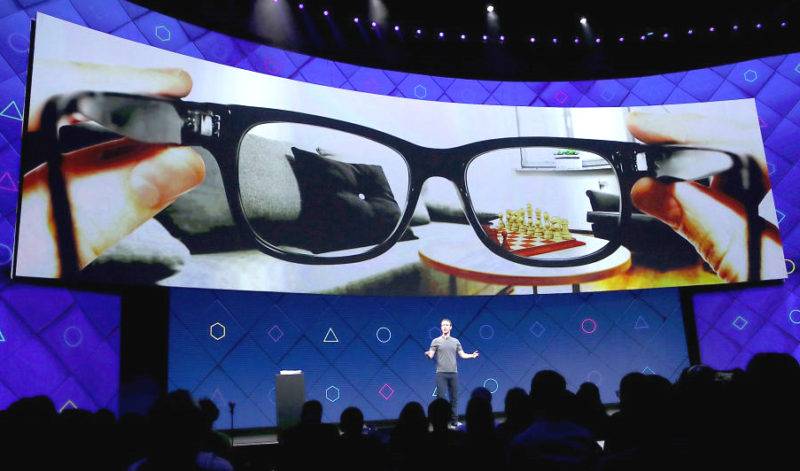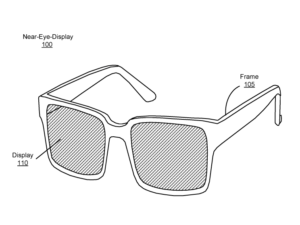Facebook-owned Oculus has patented a lightweight smart glasses concept that would be able to “augment views of a physical, real-world environment with computer-generated elements.”
The patent shows a pair of glasses that look like basic shades, which would force the electronics to be packed in tightly, similar to the first version of Google Glass. Instead of having to look up to see the augmentation, Oculus plans to use all the glass as a display.
See Also: Facebook finally adds virtual reality app to the social network
Three members of the advanced research division at Oculus, including one that previously worked on Microsoft’s HoloLens, published the patent application, according to Business Insider.
Facebook CEO Mark Zuckerberg said the ‘end goal’ for AR is lightweight glasses at the company’s developer conference last year. That goal may be a few years away from reality, with Oculus chief scientist, Michael Abrash, recently saying that AR glasses won’t replace smartphones until 2022.
Four of the five major U.S. tech companies are working on smart glasses. Apple patented a design similar to Oculus that allows mixed reality and content layered on-top of real world environments; Microsoft is building the more expensive HoloLens; and Google has Glass.
Amazon is the only one that has not shown interest, more focused on quirky ways for drones to fly around cities.
Between now and the augmented future, Oculus is expected to launch a whole range of virtual reality headsets for all types of consumers. A sub-$500 standalone headset could launch before the end of the year, and mobile headsets are reportedly in the pipeline.











